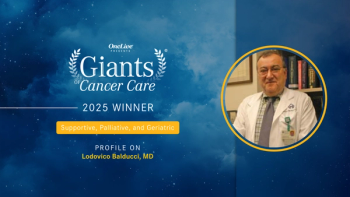
Conclusion: Key Take-Away Points and Cardiac Safety
For High-Definition, Click
Many of the tyrosine kinase inhibitors (TKIs) used to treat renal cell carcinoma (RCC) are associated with cardiac risk, due to the on-target biology of inhibiting VEGF. To investigate this further, a phase III ECOG trial compared adjuvant treatment with sunitinib or sorafenib with placebo in patients with RCC.
In the trial, neither of the TKIs was associated with significant declines in left ventricular ejection fraction or other cardiac adverse events. Although it was not reported, the average duration of therapy in this study was likely half of the full year of intended therapy, notes Brian I. Rini, MD, since adjuvant tolerance to these drugs seems to be less compared to the metastatic setting. As a result, Rini believes, these results underscore the cardiac side effects associated with these drugs.
Despite this study, cardiac risk is still associated with VEGF inhibitors and hypertension should be followed closely. As a result, Rini advises his patients to purchase a blood pressure cuff to measure and report their daily blood pressure. This process allows for early and aggressive management of hypertension, which is a step toward preventing cardiac side effects, Rini states.
At this point in the conversation, moderator, Daniel J. George, MD, invites each of the panelists to provide their final comments.
As each year passes, the field continues to advance, Robert A. Figlin, MD says. Currently, vaccines and immunotherapy in RCC are evolving rapidly and are beginning to demonstrate exciting results that could change how the disease is treated in the future. Furthermore, Eric Jonasch, MD believes, the next 5 to 10 year will likely focus on the development and incorporation of these novel immunotherapies. Specifically, Rini notes, data on PD-1 pathway inhibitors are vey promising and may result in long-term benefits for patients with RCC.





































